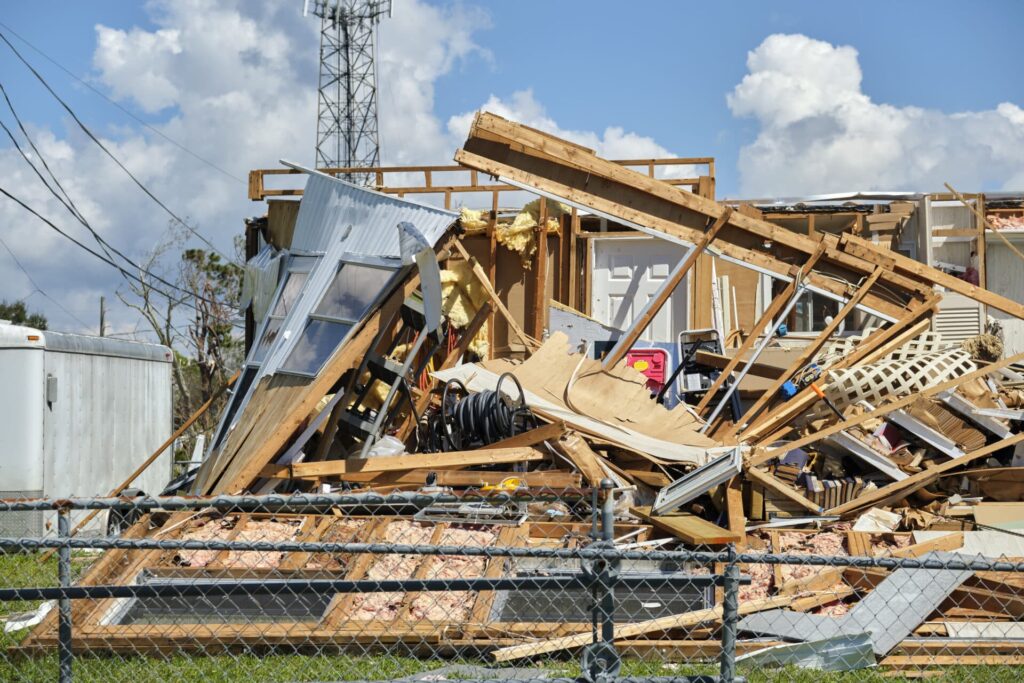A temporary property tax exemption is available for Texas properties that sustain major storm damage. If you are denied a property tax exemption that you qualify for, schedule a consultation at once with a San Antonio storm damage attorney who can appeal that decision for you.
Storm damage is a major concern in Texas. The winter storm in February 2021, for example, caused subfreezing temperatures, widespread power outages, and billions of dollars in damages. In 2017, Hurricane Harvey caused catastrophic flooding and more than $125 billion in damages.
What Should Property Owners Know About Storm Damage?
Property owners should never have to pay more than they actually owe for property taxes. When an area is designated as a disaster area by the governor, the Texas Tax Code allows a “qualified” property to receive a temporary exemption for a portion of the appraised value of the property.

Under the Texas Tax Code, how is a “qualified” property defined? How much time do property owners have to apply for a temporary storm damage exemption, and what steps will they need to take? What will a San Antonio storm damage lawyer do on a property owner’s behalf?
Keep reading this brief discussion of a property owner’s rights in Texas for the answers to these questions, but if you are a Texas property owner who has sustained storm damage, you will also need the services and personalized legal advice that a San Antonio storm damage attorney offers.
What Texas Properties Qualify for a Storm Damage Exemption?
The temporary property tax exemption for Texas properties that sustain major storm damage applies only to “qualified properties.” Qualified properties may include businesses, houses, apartments, industrial buildings, and some manufactured homes that are used for dwellings.
A qualified property is assigned a damage assessment level by the county’s Central Appraisal District based on information from the Federal Emergency Management Agency, the county emergency management authority, and in some cases, insurance adjusters and repair estimates.
How Much of a Break on Your Property Taxes Can You Get for Storm Damage?
The damage assessment level assigned to a qualified storm-damaged property by the county’s Central Appraisal District determines the size of the property tax exemption:
- A Level 1 damage assessment is assigned to properties that have sustained minimal damage and that may continue to be used as they have been used in the past. A Level 1 damage assessment qualifies a property for a 15 percent property tax exemption.
- A Level 2 damage assessment is assigned to properties that suffer nonstructural damage, and if flooded, have a waterline less than eighteen inches above floor level. A Level 2 damage assessment qualifies a property for a 30 percent property tax exemption.
- A Level 3 damage assessment is assigned to properties that suffer significant structural damage, and if flooded, have a waterline higher than eighteen inches above floor level. A Level 3 assessment qualifies a property for a 60 percent property tax exemption.
- A Level 4 damage assessment is assigned to a property that is a total loss or that is unfeasible to repair. A Level 4 damage assessment qualifies a property for a 100 percent property tax exemption.
What Steps Should a Property Owner Take?
In order to qualify for a temporary storm damage-related property tax exemption, a Texas property owner must apply to the county’s Central Appraisal District within 105 days of the governor’s declaration of the area as a disaster area.

When the county’s Central Appraisal District has received and reviewed a property owner’s storm damage-related tax exemption application, the district will notify the owner in writing that the application has been approved, modified, or rejected.
What Can You Do if Your Application for an Exemption is Denied?
If your application for a storm damage-related property tax exemption is denied, contact a San Antonio storm damage lawyer at once and ask that lawyer to appeal the Central Appraisal District’s decision on your behalf and represent you before the district’s appraisal review board.
At a review board appeal hearing, you and your attorney as well as the property appraiser will each be allowed to offer evidence and question witnesses. Your attorney will explain why the Central Appraisal District’s assessment of your property is inaccurate.
The appraisal review board must notify you of the time, date, and location of your hearing at least fifteen days in advance. You have the right to copies of any information that the review board intends to present at your hearing.
If Your Appeal to the Appraisal Review Board Fails
If you believe that the appraisal review board’s decision is in error, you and your attorney have the right to appeal that decision to the county’s Texas District Court or to take the matter to arbitration.
If you go to court, you must file a petition with the District Court within sixty days after receiving the appraisal review board’s written decision. In some cases, you may request limited binding arbitration.

Discuss your appeal options with an attorney who has substantial experience handling Texas property tax assessment appeals. An astute Texas storm damage and property tax attorney will explain all of your rights and options and recommend the best way for you to proceed legally.
What Are the Other Consequences of Major Storm Damage?
The consequences of major storm damage in Texas are always challenging. Property owners who sustain substantial storm-related property damage may have to deal with long-term power and utility outages, repairs and contractors, and property insurance claims.
But if you have sustained property damages due to severe weather, you should not have to fight your own county’s Central Appraisal District. If a property tax dispute or disagreement arises after a major weather event, contact a Texas storm damage lawyer as quickly as possible.
When Should You Contact a Storm Damage Attorney?
In fact, if you sustain property damage due to a storm, you should reach out to a storm damage attorney immediately, even before you apply to your county’s Central Appraisal District for a storm damage-related property tax exemption.
Your attorney can ensure that your application is accurate, complete, on time, and that no mistakes or misunderstandings on your end cause your application for a temporary property tax exemption to be delayed or denied.
But whether or not you have an attorney’s advice from the beginning, you must make sure that you are not paying property taxes unnecessarily. If you sustain major storm-related property damage in or near the San Antonio area, having an attorney’s advice and services is your right.
















